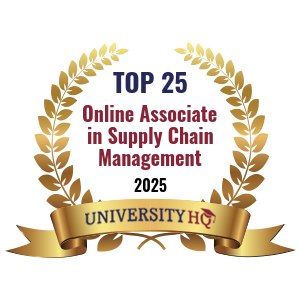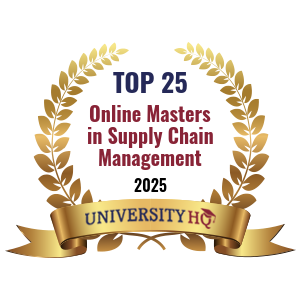Understanding Supply Chain Management
Supply chain management (SCM) involves the efficient coordination and oversight of the flow of goods, services, and information, from suppliers to end consumers. This encompasses every step from raw material procurement to product delivery. It is crucial to manage these processes to ensure cost efficiency and customer satisfaction.
Key Components:
- Logistics: This covers the transportation and storage of goods. Effective logistics ensure that products are delivered on time and in the right condition. It includes inventory management, warehousing, and transportation planning.
- Planning: Proper planning involves demand forecasting, inventory control, and production scheduling to meet consumer needs without overstocking or shortages.
Artificial intelligence (AI) is transforming SCM by enhancing decision-making and automating processes. AI tools help in demand forecasting, route optimization, and risk management. By integrating AI, you can streamline operations and make your supply chain more resilient.
Importance of SCM:
Effective SCM reduces costs and improves service levels. You can achieve flexibility, adapt to market changes, and maintain competitiveness. By focusing on logistics, planning, and technology, you enhance your supply chain's efficiency.
Understanding SCM is essential for those looking to pursue careers in this field. With the right skills and knowledge, you can navigate the complexities of supply chains and contribute to a business's success.
Education and Certification in SCM
In the realm of supply chain management, understanding both academic pathways and professional certifications plays a critical role. Dynamic and continuous learning is vital for staying competitive. Here's a closer look at various educational strategies and certification routes available.
Academic Pathways
Starting your education in supply chain management can begin at different levels. An associate degree provides foundational knowledge, covering basics of logistics, operations, and procurement. For a broader understanding, a bachelor’s degree introduces you to complex topics like supply chain analytics and global logistics.
For advanced mastery, consider a graduate degree or an MBA in supply chain management, which delves into leadership and strategic decision-making.
Associate Degree in Supply Chain Management
An associate degree in supply chain management is designed for beginners aiming to grasp foundational concepts. This program typically includes courses in logistics, procurement, and operations, providing a broad overview of supply chain dynamics.
You will develop skills in transportation operations management, shipping and receiving, and inventory management. Practical applications through hands-on projects ensure that you can relate coursework to real-world scenarios.
The program emphasizes affordability and flexibility, often available in online formats. Expect to enhance your basic analytical skills and gain insights into supplier relationship management. Completion may lead to entry-level roles in store management or distribution centers.
Bachelor's Degree in Supply Chain Management
A bachelor’s degree elevates your knowledge with an in-depth look into complex supply chain networks. You will study supply chain strategy, forecasting, and cost analysis, offering a comprehensive approach to operational challenges.
Courses often integrate business process management, data management, and specialized areas such as strategic sourcing and project management. Programs accredited by organizations like AACSB International ensure quality and relevance in the rapidly evolving supply chain landscape.
Through a mix of theory and practice, including case studies and guided projects, you'll engage in market analysis and operational analysis. This level of education prepares you for roles such as logistics analyst or operations manager, focusing on advanced leadership and management skills.
Master's Degree in Supply Chain Management
A master’s degree in supply chain management aims to cultivate advanced expertise and strategic leadership. You'll explore advanced topics such as supply chain and logistics, business intelligence, and supply chain risk management.
Courses delve into data science, business analysis, logistics and customer service, equipping you with superior skills in supply chain analytics and performance management. Programs often require a capstone project, where you apply learning in a strategic, high-impact initiative, preparing you for top-level positions.
Professional certifications like those from ASCM and customization options, including specializations in areas like supply chain systems, are common. You'll emerge with the skills needed for strategic roles, adept in handling complex supply chain challenges.
Professional Certifications
Professional certifications enhance your credentials and prove your commitment to the field. Programs like Certified Supply Chain Professional (CSCP) and APICS Certification are highly recognized in the industry. They focus on strategic approaches, technology integration, and end-to-end supply chain management.
Such certifications exhibit your expertise in optimizing processes and managing operations. Certificate programs offer a flexible route for those seeking to update their skills without undergoing a full degree. These are especially beneficial for professionals looking to specialize in certain areas or update their knowledge on the latest industry trends.
Careers in Supply Chain Management
Explore the various roles within the field of supply chain management, encompassing entry-level positions, specialized careers, and leadership roles. This section delves into the path of supply chain professionals and the opportunities that await in a growing industry.
Entry-Level Roles and Progression
Starting a career in supply chain management often begins with roles such as purchasing assistants or logistics coordinators. These positions typically require a bachelor's degree and provide exposure to essential functions in supply chains, such as procurement and logistics management. They offer a clear supply chain career path.
In these roles, you will likely focus on coordinating shipments, managing inventory levels, and supporting senior supply chain professionals. The experience gained is invaluable for progressing to mid-level positions like supply chain analyst or materials manager.
Specialized SCM Careers
For those interested in niche areas, several specialized supply chain careers exist. Positions like demand planner and procurement specialist are critical to ensuring the smooth operation of supply chains. These roles focus on forecasting demand and negotiating with suppliers to optimize costs and maintain quality.
Supply chain analysts evaluate data to improve efficiency and performance. They identify trends and recommend strategies to streamline processes, contributing significantly to business success. Other roles, such as sustainability managers, emphasize eco-friendly practices in supply chains.
As the industry evolves, the demand for specialized skills continues to rise. Relevant certifications or a master's degree can provide a competitive edge in securing these specialized roles.
Leadership in Supply Chain
Leadership positions in supply chain management, such as logistics manager or director of supply chain operations, involve strategic decision-making and team leadership. These roles are pivotal in shaping and improving the supply chain strategy of an organization.
In these roles, you will manage large teams, oversee supply chain logistics, and ensure alignment with company objectives. Experience in various SCM roles is often required, paired with a proven track record of managing operations effectively.
The opportunity for advancement in leadership roles is promising, with many organizations seeking innovative leaders to guide their supply chains in an increasingly complex global market. Networking with industry bodies like the Association for Supply Chain Management can also open doors to these higher-level opportunities.
Key Supply Chain Processes
In supply chain management, each key process adds value by enhancing efficiency and cost-effectiveness. These processes range from sourcing raw materials to managing inventory and ensuring sustainable operations.
Strategic Sourcing and Procurement
Effective supply chain management starts with strategic sourcing and procurement. You focus on identifying the best possible suppliers, negotiating favorable terms, and ensuring that materials meet the required quality standards. By carefully analyzing supplier performance and market trends, you aim to reduce costs and mitigate risks. This process involves collaboration with stakeholders to align purchasing strategies with business goals, optimizing the supply chain's function, and ensuring a reliable flow of inputs. Leveraging technology such as e-procurement platforms can help streamline these activities.
Inventory and Order Management
Inventory and order management are crucial for maintaining the balance between supply and demand. You need to track stock levels, manage warehouses efficiently, and ensure orders are processed promptly. Utilizing systems like Just-In-Time (JIT) and ERP software can enhance the oversight of inventory and reduce carrying costs. Keeping inventory at optimal levels prevents excess and shortage, which in turn supports customer satisfaction. Implementing effective order management processes enables seamless operations across retail and e-commerce channels and enhances fulfillment speed.
Transportation and Logistics
Successful transportation and logistics management ensures products are delivered efficiently and on time. You coordinate the movement of goods from production facilities to end-users, optimizing routes and modes of transport. Leveraging technologies like IoT and GPS can help minimize delivery times and reduce costs. In this process, you also focus on balancing costs with customer service expectations. Partnerships with reliable carriers are essential, as is staying ahead of logistical challenges such as regulatory requirements and global disruptions.
Reverse Logistics and Sustainability
Reverse logistics and sustainability play a significant role in contemporary supply chain management. Understanding the flow of returned goods, you implement processes to efficiently manage returns, refurbishments, or recycling. Incorporating sustainability initiatives can reduce environmental impacts and enhance brand reputation. Practices such as product redesign and minimizing packaging materials contribute to eco-friendly operations. Collaborating with green logistics partners and utilizing innovative software helps track and optimize reverse logistics, reinforcing your commitment to sustainability.
Supply Chain Technology and Innovation
Staying ahead in supply chain management calls for leveraging cutting-edge technology like AI, blockchain, and data analytics. These tools enhance forecasting, streamline strategic sourcing, and meet evolving customer demand efficiently.
The Role of AI and Automation
Artificial Intelligence (AI) and automation are revolutionizing supply chain operations. AI enhances forecasting accuracy by analyzing large datasets to predict customer demand more effectively. Automation in warehousing and logistics optimizes resource use, reducing both time and operational risks. By allowing real-time responses to changing circumstances, AI-driven systems offer a robust solution for inventory management and production scheduling. They enable adaptive strategies, improving efficiency in supply chain processes.
Advances in Data Analytics
Data analytics in the supply chain is pivotal for informed decision-making. By crunching vast amounts of data, these techniques identify patterns crucial for strategic sourcing and demand forecasting. Predictive analytics models navigate complexities, ensuring that supply chains remain resilient to disruptions. Visual dashboards emerging from these systems enhance user experience, providing key insights at a glance. Such analytics not only streamline operations but also improve ROI by aligning supply capabilities with market demands.
Blockchain in Supply Chain
Blockchain introduces unparalleled transparency and traceability in supply chains. This distributed ledger technology records transactions immutably, ensuring that every step, from sourcing to delivery, can be verified. By enhancing visibility, blockchain strengthens trust across supply chain partners. It efficiently manages data sharing without compromising privacy, which is crucial for strategic sourcing. Blockchain also aligns with consumer expectations for ethical sourcing, by providing authentic product information directly to customers, making it beneficial for all stakeholders.
Industry Trends and Job Market
Understanding the current landscape of logisticians and the supply chain field is crucial for seizing career opportunities. Supply chain management jobs are evolving rapidly due to technological advancements and shifting global demands. Recognizing these changes can guide your career path effectively. Careers for logisticians are expected to grow 19% from 2023 to 2033, which is much faster than the average growth rate for all occupations at 4%.
Evolving SCM Job Market
The supply chain management job market is witnessing significant transformation. As businesses optimize operations, the demand for tech-savvy professionals with expertise in data-driven decision-making is soaring. You might explore roles in emerging areas such as digitization and automation, harnessing technologies like Internet of Things (IoT) and big data analytics.
Career opportunities are broadening. Internships provide practical experience, often leading to permanent positions. Companies like BASF and Mondelēz are notable for offering pathways into dynamic supply chain careers. Staying informed about these developments is vital for remaining competitive.
Impact of Global Trends
Global supply chains face unprecedented challenges, influencing job outlook. Companies are striving for agility and resilience in response to disruptions, such as those caused by the pandemic. This necessity drives demand for innovative solutions and skilled professionals who can navigate complex supply networks.
You’ll notice that global trends impact internships and job availability. Competencies that address these trends, such as risk management and sustainability, are becoming critical. Continually updating your skill set to reflect these global influences can significantly enhance your career prospects in supply chain management.
Professional Development and Advancement Resources
Advancing in the supply chain management (SCM) field involves strategic networking, engaging with professional associations, and cultivating essential skills. These are key for improving your professional standing, enhancing opportunities for career progression, and staying updated with industry trends.
Building a Network
Networking in SCM plays a crucial role in career advancement. Establishing connections with peers, mentors, and industry experts can provide you with insights, opportunities, and recommendations. Attending industry events and conferences to expand your network.
LinkedIn and professional forums are excellent platforms for engaging with professionals globally. Engage actively, share knowledge, and seek collaborative projects. Building meaningful relationships can enhance problem-solving skills, foster innovation, and open doors to new roles.
Leveraging SCM Associations
Joining SCM associations can significantly benefit your career. Organizations like the Association for Supply Chain Management offer resources for professional growth. Membership often includes access to webinars, certifications, and industry publications.
The Council of Supply Chain Management Professionals is another valuable association. Becoming part of such communities connects you with thought leaders and provides access to essential career-advancing materials. Associations can also serve as platforms for recognizing industry trends and participating in professional development programs.
Skills and Competencies
In SCM, honing a mix of skills is vital for professional advancement. Problem-solving skills and analytical skills are particularly essential for addressing complex supply chain challenges and optimizing operations. Practical knowledge of technology and data analytics enhances efficiency in decision-making processes.
Employers often seek professionals with strong negotiation and project management capabilities. Focus on continual learning and upskilling through certifications and specialized training programs. Developing these competencies will position you as an asset, capable of leading supply chain transformations and innovations.
Navigating the SCM Job Market
Finding your way in the supply chain management (SCM) job market involves crafting an effective resume, leveraging job boards, and planning your career path wisely. You'll find that attention to detail, strategic use of resources, and focused career planning are key to success.
Planning Your Career Path
A well-thought-out career plan can steer your long-term success in SCM. Start by assessing your interests and strengths within areas like logistics management, distribution, or inventory control. Understanding industry trends and demands contributes to informed career decisions.
Consider obtaining certifications or further education in fields such as global supply chain management or lean logistics. Resources like professional organizations and workshops provide valuable learning and networking opportunities. Map out short and long-term career goals, identifying positions you aspire to. This proactive approach can make you more adaptable and prepared for emerging job roles within the industry.
State-By-State Supply Chain Management Rankings
Select a State to Search Colleges & Universities

- Select a State
-
- Alabama
- Alaska
- Arizona
- Arkansas
- California
- Colorado
- Connecticut
- Delaware
- District of Columbia
- Florida
- Georgia
- Hawaii
- Idaho
- Illinois
- Indiana
- Iowa
- Kansas
- Kentucky
- Louisiana
- Maine
- Maryland
- Massachusetts
- Michigan
- Minnesota
- Mississippi
- Missouri
- Montana
- Nebraska
- Nevada
- New Hampshire
- New Jersey
- New Mexico
- New York
- North Carolina
- North Dakota
- Ohio
- Oklahoma
- Oregon
- Pennsylvania
- Rhode Island
- South Carolina
- South Dakota
- Tennessee
- Texas
- Utah
- Vermont
- Virginia
- Washington
- West Virginia
- Wisconsin
- Wyoming



